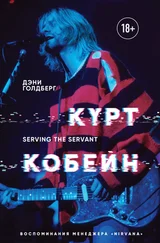Clara Park - Exiting Nirvana
Здесь есть возможность читать онлайн «Clara Park - Exiting Nirvana» весь текст электронной книги совершенно бесплатно (целиком полную версию без сокращений). В некоторых случаях можно слушать аудио, скачать через торрент в формате fb2 и присутствует краткое содержание. ISBN: , Жанр: Психология, на английском языке. Описание произведения, (предисловие) а так же отзывы посетителей доступны на портале библиотеки ЛибКат.
- Название:Exiting Nirvana
- Автор:
- Жанр:
- Год:неизвестен
- ISBN:0-316-69117-8
- Рейтинг книги:4 / 5. Голосов: 1
-
Избранное:Добавить в избранное
- Отзывы:
-
Ваша оценка:
- 80
- 1
- 2
- 3
- 4
- 5
Exiting Nirvana: краткое содержание, описание и аннотация
Предлагаем к чтению аннотацию, описание, краткое содержание или предисловие (зависит от того, что написал сам автор книги «Exiting Nirvana»). Если вы не нашли необходимую информацию о книге — напишите в комментариях, мы постараемся отыскать её.
All illustrations are by Jessy Park.
Exiting Nirvana — читать онлайн бесплатно полную книгу (весь текст) целиком
Ниже представлен текст книги, разбитый по страницам. Система сохранения места последней прочитанной страницы, позволяет с удобством читать онлайн бесплатно книгу «Exiting Nirvana», без необходимости каждый раз заново искать на чём Вы остановились. Поставьте закладку, и сможете в любой момент перейти на страницу, на которой закончили чтение.
Интервал:
Закладка:
It’s a pleasure for Jessy too. She’s pleased to share her painting, to hear me praise the colors, pleased to name them, to tell me the ones she’s mixed to produce a particular shade — for she rarely uses a color straight from the tube. Cadmium yellow is hard for her to pronounce, but she’ll try, and laugh when she fails with phthalocyanine green and quinacridone rose. She has sixty-two tubes of assorted acrylics, and a new shade is right up there with chocolate as one of the few things she wants to buy. Neatly arranged in spectrum order, her tubes are ready to express her ideal world, organized, certain, fully under her control.
She is pleased to get checks, pleased to have a show, a reception, refreshments. She is pleased to be an artist. Or perhaps content» is the better adjective. It is her proud parents who are pleased, delighted, thrilled. Jessy is content to be an artist, as she is content to be a mail clerk. After all, to her one activity is no more prestigious than the other.
Yet in art too autism has its hidden land mines, and not only the possibility of a pain to. A pain to is the worst that can happen when she’s alone in her room. But outside, the social world impinges. As she sketches a house, pad in hand, absorbed in penciling in the clapboards that offer opportunities for rainbow upon rainbow, a curious passerby asks a what-question. «What are you making?» That’s bad when she’s making cookies, bad when she’s making art. Jessy knows it may happen; she tries to prepare herself beforehand. Still, she may explode if it catches her unawares. Or at a reception, everything going well — she’s enjoying the attention, enjoying the refreshments, enjoying seeing her paintings again (she has no eyes for other people’s), enjoying the praise
— I make a mistake. Someone tells her she’s a wonderful artist. I remind her that a compliment deserves a thank-you, and a happy occasion collapses into misery. We must go outside to recover, leaving the bewildered stranger to wonder what he did wrong. Even here, autism’s minuses and pluses are inseparable. But now the pluses last longer.
When Jessy painted her room last year she used, of course, the full spectrum: violet, blue, green, yellow, orange — and pink, for these are pastels. Not just any pastels, however, but mixed to her specifications. A friend, an architect, brought her four huge volumes of color samples. The whole rainbow was there, hundreds of shades, numbered for a fussy client to choose from. Jessy did not deliberate, she knew; her choice was instantaneous. And now her room is not a riot, but a breathtaking harmony of color. Green and orange appear in two shades: mint and lime, pale orange and sunny peach. Each window, each window frame, each door, each door panel, each shelf, each alcove, is a different color. A cupboard faced in tongue-and-groove provides the necessary opportunity to display the full spectrum. This too is art, and Jessy is older now. I think even she would agree that these are happy colors.
Part four
Living
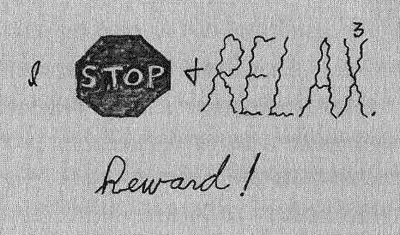
Chapter 9
«Because can tell by the face»
It’s late; Jessy has been in bed for hours. We are listening to music with friends when she comes down to tell me her radiator is clanking. She’s quiet, even polite, but she’s annoyed. Her mind is on the sound, the old GAKE of childhood, and she goes straight, not to me, but to another elderly woman, and tells her. I recall similar misidentifications; they happen often when former companions come back to see her. But this is the first time it’s happened to me. Afterward, when we talk about it, she explains. «Both have white hair».
And that’s not even true. Mary’s hair is white; mine is a nondescript gray. It’s not that Jessy doesn’t know the difference between an old friend — she’s known Mary for thirty years — and her mother. It’s that her mind was full, too full to make the extra effort to attend to the indicators that a normal two-year-old processes so effortlessly that it seems instinctual. And if she can overlook so clear, so visual an indicator as hair color — Jessy, who distinguishes the minutest differences between shades — how can we expect her to pick up the subtle indicators of emotions?
And if she can’t, how can we expect her to manage the ordinary, inescapable interchanges of living?
At times we have the eerie feeling that Jessy is a Martian, a visitor from some pure planet where feelings do not exist. (Autistic people have a similar feeling; many of them watch Star Tretand feel, with Temple Grandin, an identification with Mr. Spock.) She asks a question, trying to work it out: «Is it a reason to get sad when old people die?» A friend has called to say he won’t be coming to dinner; his father has died suddenly. Well? We had presented the death of grandparents as something to accept without tears — grandfather at eighty-six, confused and depressed, grandmother at ninety-two, incapacitated by a stroke. Jessy believed us. How not? She had picked up no contradictory signals. A normal child would see beneath the apparent acceptance of death to qualify it; our reassurances had unthinkingly assumed that Jessy would recognize our unspoken sadness. Yet we should have known; we knew her cheerful interest in funerals as «a good reason» to miss a day of work and still get paid. It was predictable. «I didn’t know people get sad when old people die».
But there is progress. We see a movie. Jessy can follow a film now, if it is simple enough and I am there to provide a running summary; she remembers to this day how the princess in Star Wars was sad when the Death Star destroyed her planet. Another movie is about children lost in the Adirondacks. At a moment when they are in grave danger from a murderous tramp who is stalking the little boy with a gun, Jessy surprises me: «I think I am going to cry». Empathy! How long we’ve waited for it! I tell her they’re going to escape, as they fortunately do, and it’s all right. Yet two weeks later on a TV western the hero, shot by Indians, has an arrow through his shoulder, obviously a serious wound. A rail road track is visible, however, and a train has been mentioned, so: «He will miss the train?» Or in the cartoon Pinocchio, she shows interest in the moon rising, but walks out on the scene of Gepetto and Pinocchio embracing when Pinocchio becomes a real boy. I recall how when she was eighteen a psychologist said she needed to talk about feelings. We tried to provide a vocabulary, only to see her delightedly collect words with similar prefixes — discouraged, disappointed, desperate, depressed, disgruntled, dismayed — her mental energies absorbed in the enterprise of arranging them in hierarchies of severity, her emotions untouched.
Those who live and work with autistic people have many such anecdotes. A woman with an M.A. consoles a friend who’s lost her mother; she tells her she knows how she feels because her parakeet has just died. Or there’s the teenager reported by Christopher Gillberg, a specialist in autism, who «after the death of his mother, when people asked how he was doing. usually answered, ‘Oh, I am all right. You see I have Asperger syndrome, which makes me less vulnerable to the loss of loved ones than are most people.’» [31] Christopher Gillberg, „Clinical and Neurological Aspects of Asperger Syndrome in Six Family Studies“, in Frith, ed., Autism and Asperger Syndrome, p. 132.
. Everybody dies sometime, I said to Jessy this year apropos of something or other. She replied with her usual cheerfulness. «Then when you die our house will belong to me!» And that is perfectly true.
Интервал:
Закладка:
Похожие книги на «Exiting Nirvana»
Представляем Вашему вниманию похожие книги на «Exiting Nirvana» списком для выбора. Мы отобрали схожую по названию и смыслу литературу в надежде предоставить читателям больше вариантов отыскать новые, интересные, ещё непрочитанные произведения.
Обсуждение, отзывы о книге «Exiting Nirvana» и просто собственные мнения читателей. Оставьте ваши комментарии, напишите, что Вы думаете о произведении, его смысле или главных героях. Укажите что конкретно понравилось, а что нет, и почему Вы так считаете.
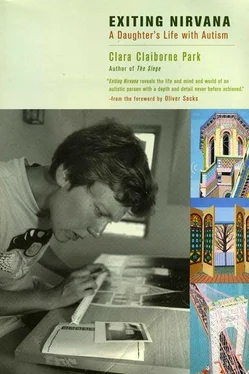
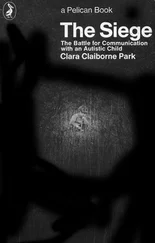
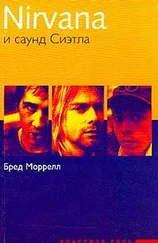
![Майкл Азеррад - Come as you are - история Nirvana, рассказанная Куртом Кобейном и записанная Майклом Азеррадом [litres]](/books/392533/majkl-azerrad-come-as-you-are-istoriya-nirvana-ra-thumb.webp)



![Эверетт Тру - Nirvana - Правдивая история [litres]](/books/399241/everett-tru-nirvana-pravdivaya-istoriya-litres-thumb.webp)
